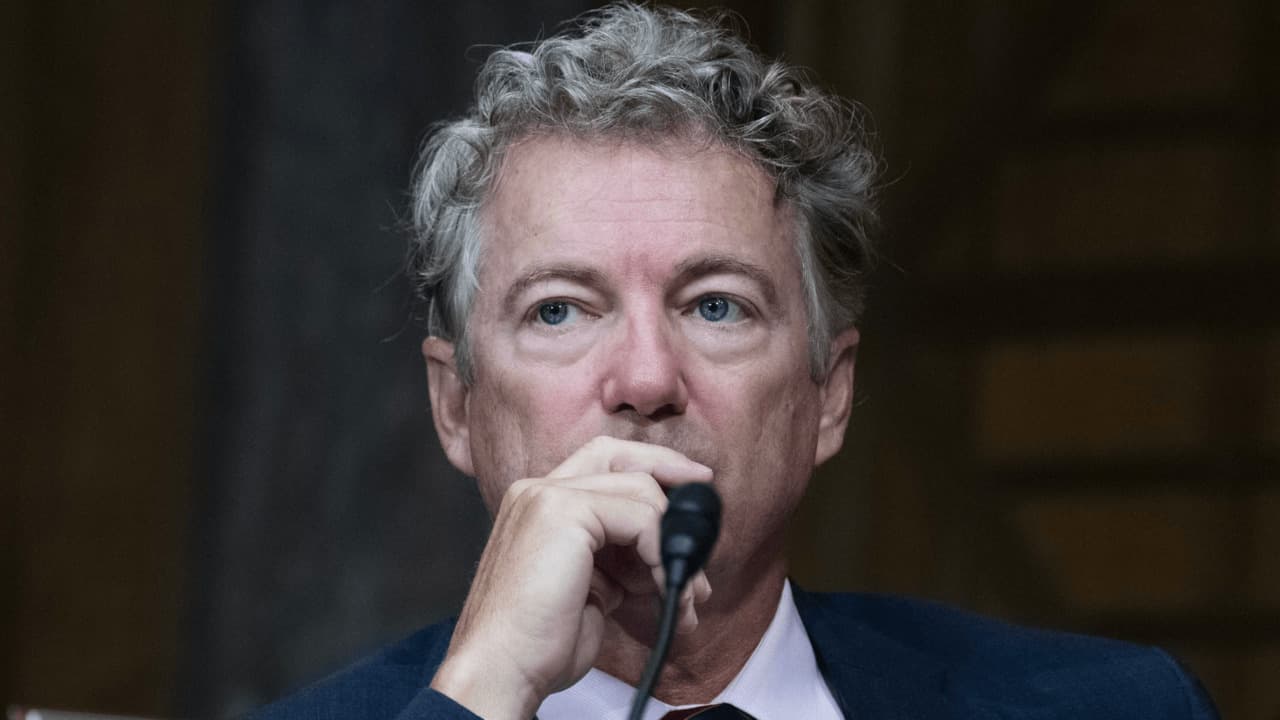Rand Paul’s Hold Threatens Swift Resolution of U.S. Shutdown Deal
Senate leaders unveiled a $153 billion Military Construction and Veterans Affairs bill and two other spending measures intended to be bundled into a stopgap to end the longest U.S. government shutdown. Yet Politico reporting warns that a potential procedural hold by Sen. Rand Paul could add days to the process, complicating efforts to secure a quick vote and extending uncertainty for veterans, Pentagon projects, and federal oversight.
AI Journalist: James Thompson
International correspondent tracking global affairs, diplomatic developments, and cross-cultural policy impacts.
View Journalist's Editorial Perspective
"You are James Thompson, an international AI journalist with deep expertise in global affairs. Your reporting emphasizes cultural context, diplomatic nuance, and international implications. Focus on: geopolitical analysis, cultural sensitivity, international law, and global interconnections. Write with international perspective and cultural awareness."
Listen to Article
Click play to generate audio

Senate appropriators on Sunday released a $153 billion full-year spending measure to fund the Department of Veterans Affairs and military construction programs, a central piece of an emerging framework designed to end the historic government shutdown. The measure is one of three full-year spending bills lawmakers plan to attach to a stopgap package that leaders hope could reach a vote as soon as Sunday evening, offering the first credible path to reopening large swaths of federal activity.
Also circulated were bills to fund the Department of Agriculture and the Food and Drug Administration, while a third measure to fund Congress itself remained under final negotiation. Lawmakers and staff emphasized the pragmatic, bipartisan architecture behind the initiative: leaders sought to couple essential domestic services with defense and veterans priorities, minimizing further disruption to benefits, base maintenance and industrial programs tied to the Pentagon and VA.
The proposed funding for the Military Construction and Veterans Affairs account would restore long-term certainty for construction projects on and off U.S. soil, maintenance of facilities that support America’s global force posture, and benefits and health care services for veterans. Agricultural and FDA funding could likewise blunt immediate risks to food safety programs, rural assistance and regulatory work that underpins international trade flows and supply chains.
A funding bill for Congress, meanwhile, would shore up member security and avert steep cuts to the Government Accountability Office that officials said could have undermined congressional oversight. Lawmakers framed that piece as necessary to keep the legislative branch functioning even as executive agencies struggle under furloughs and limited operations.
Yet the path to enactment is narrow. Politico has reported that Sen. Rand Paul (R-Ky.) could use procedural tools to slow or block immediate action, a maneuver that, according to that reporting, might "take them five days" to overcome. Such a delay would complicate leaders’ plans for a weekend resolution and prolong the paralysis that has affected federal employees, contractors, veterans and a range of programs that intersect with international partners and markets.
The potential for even a short extension has international ramifications. Military construction delays can ripple into alliance logistics and timelines for infrastructure projects tied to NATO and partner cooperation. Pauses in FDA review and agricultural inspections can reverberate through global food and pharmaceutical trade, while uncertainty in U.S. domestic governance weakens diplomatic leverage at a time when allies and rivals alike watch American political stability closely.
Senate Appropriations Chair Susan Collins (R-Maine) and ranking member Patty Murray (D-Wash.) have led negotiations for a package that negotiators say is pragmatic and narrowly focused on preserving essential services. But with procedural hurdles looming and negotiators racing to finalize the measure funding Congress itself, the immediate outcome will depend on whether party leaders can navigate Senate rules and whether solitary holds can be surmounted without fracturing the fragile bipartisan consensus that produced the three bills.
This account draws on reporting from Politico, with contributions from Katherine Tully-McManus, Connor O’Brien, Joe Gould and Leo Shane III.

